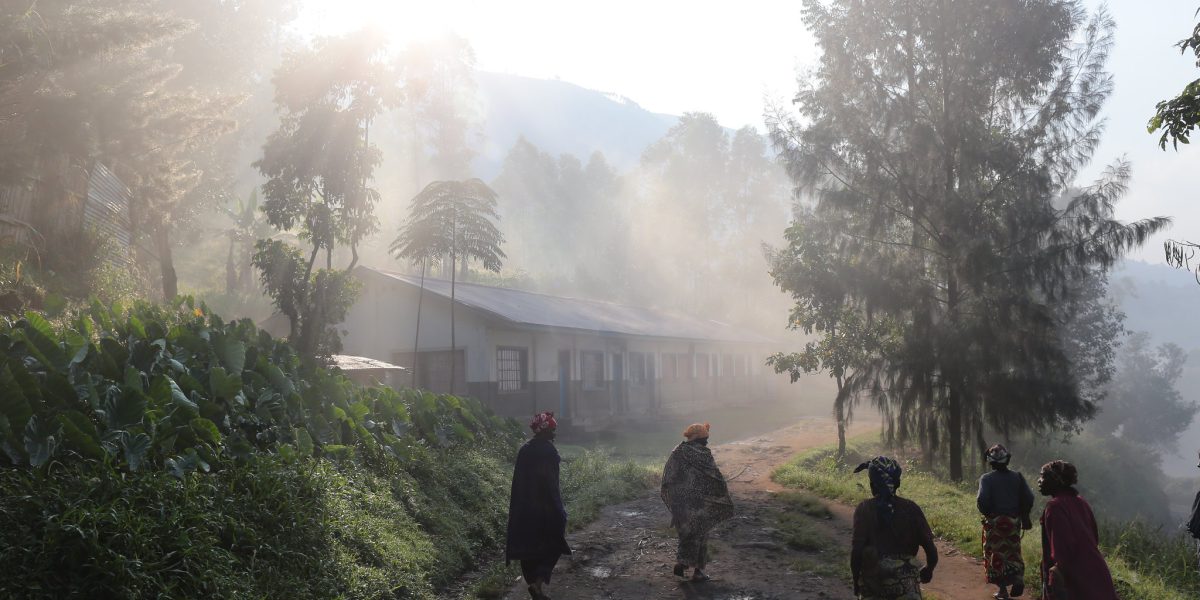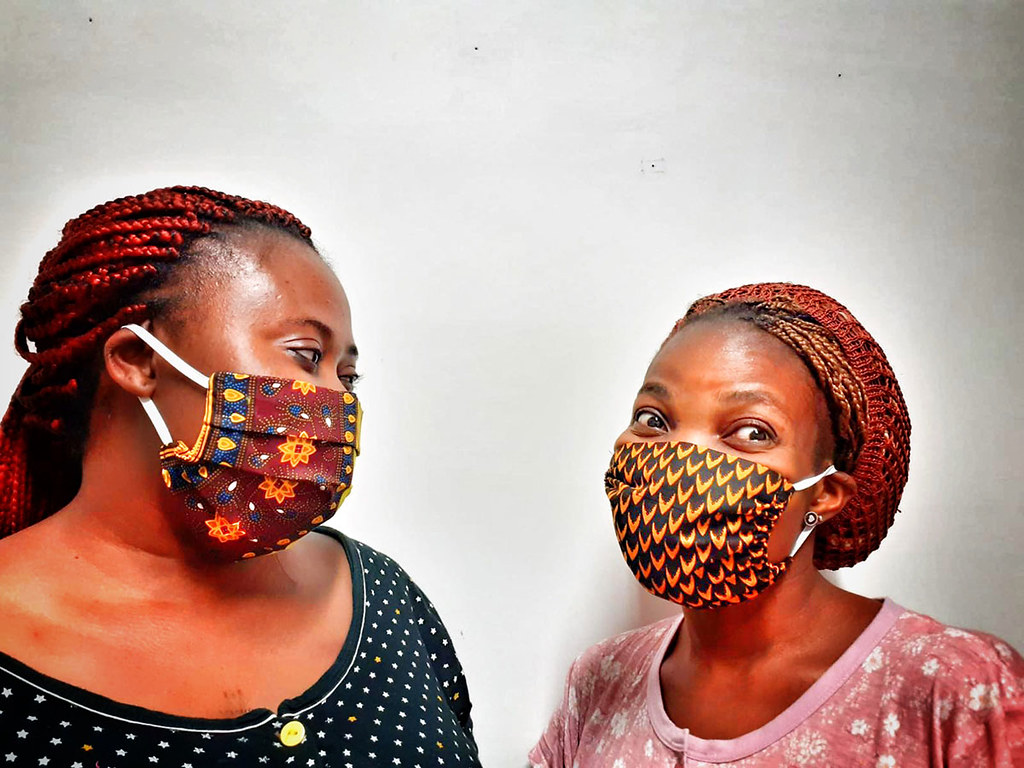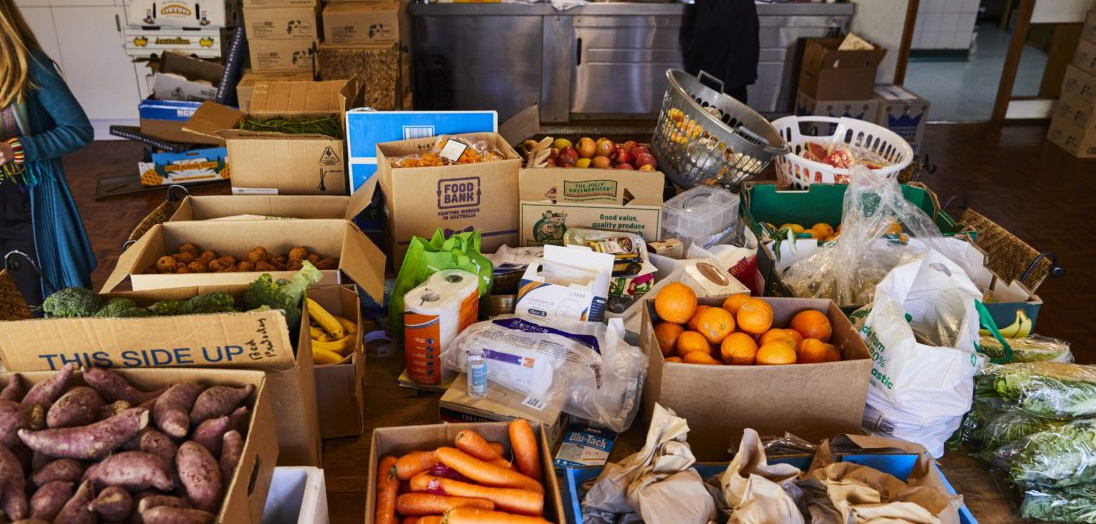Laudato Si’ Week 2024: Climate displacement and caring for our common home
20 May 2024|Charlotte Evans

Laudato Si’ Week 2024
During Laudato Si’ Week, which takes place from the feast of Pentecost on Sunday May 19 to Sunday May 26, we reflect on the ecological message shared by Pope Francis in his encyclical titled “On care for our common home”.
This letter calls for a global dialogue about how we are shaping the future of our planet through our daily actions and decisions, and highlights the need for “swift and unified global action”.
To this end, JRS Australia is a member of the Australian Jesuit “Care for our Common Home Committee”, where we contribute our research and pool our resources to learn more about how to protect and caretake those who have been, or are at risk of being, displaced by climate change.
In recognition of this week, we share a reflection from Charlotte Evans (Masters student at the University of Cambridge and former climate intern at JRS Australia), about Australia’s response to climate-related displacement, and the work that still needs to be done.
Reflection:
Each year, the climate crisis worsens, with 2023 being the warmest year since records began.
Climate change, and the corresponding increase in climate-related disasters, has driven displacement and compounded vulnerabilities for at-risk communities and regions worldwide.
Sydney’s Kaldor Centre for International Refugee Law identified “about three times as many people are displaced internally by disasters than by conflict – the vast majority in the Asia-Pacific region”.
Although not all disasters are driven by the climate, many are becoming both more frequent and more intense with climate change.
Additionally, climate impacts, such as intense heat and other severe weather events like droughts and flooding, are also making life harder for people already displaced or on the move. Such complexities of climate-related displacement make it naturally hard to define, harder to measure, and challenging for the global community to respond.
Most of the time, climate change and disasters cause displacement which is both temporary and internal, rather than across international borders. Furthermore, since displacement is not driven by persecution, the category of “climate refugee” does not exist under international law. People in such situations of displacement thus often fall between policies and into protection gaps.
Australia has an important role to play, situated within the Pacific region, where low-lying island nations are at the forefront of the climate crisis. New migration pathways are emerging to Australia: the bilateral ‘Falepili Union’ with Tuvalu is the first agreement offering a climate-related mobility pathway.
However, while migration can provide one option within the toolkit of necessary responses, leaving home is the last resort for many communities.
Australia must therefore commit to concerted climate action if it is to truly consider its regional neighbours, as well as its own climate-driven challenges. As the second largest exporter of coal in the world, and with the recently unveiled Future Gas Strategy demonstrating a continued reliance on gas, Australia must significantly reduce its reliance on fossil fuels and instead move swiftly towards a just and sustainable transition.
While one can often feel overwhelmed by the scale of the climate crisis, it is essential to remember that change is possible, and that everyone has a part to play in building an alternative future.
The theme of this year’s Laudato Si’ Week is inspired by the Season of Creation 2024 symbol, “the first fruits of hope”.
Hope is a powerful tool to generate action – and action, on all scales, is vital to prevent further ecological and environmental breakdown. As Pope Francis acknowledges, such hope first comes from within: this year, Laudato Si’ Week is dedicated to inspiring “a personal and cultural transformation in the midst of our ecological and climate crises”.
Perhaps this month, you might seek out one action in your daily life that contributes to transforming our planet, transforming yourself, and supports a cultural shift in our relationship with the natural world.
My hope is that a greater recognition of the beauty of creation will transpire into action by communities, leaders, and nations to care for our common home.
About the author
 Charlotte Evans is a student from the United Kingdom, interested in the challenges surrounding climate change and forced migration. She spent 3 months as an intern with JRS Australia last year, developing our work on climate-related displacement.
Charlotte Evans is a student from the United Kingdom, interested in the challenges surrounding climate change and forced migration. She spent 3 months as an intern with JRS Australia last year, developing our work on climate-related displacement.
Charlotte is now completing a Masters in ‘Anthropocene Studies’ at the University of Cambridge, with a research focus on climate mobility in the Pacific region.
Be a part of the conversation
If this is a topic that interests you, please visit our Climate page to learn more, or get in touch with amelia.savage@jrs.org.au. You can also subscribe to our email newsletter to receive updates about our work in this and related areas.



